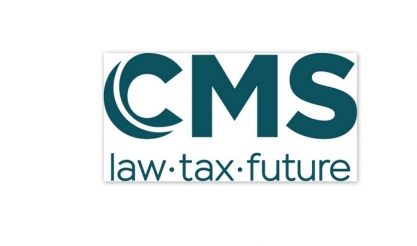
CMS | Romania expects significant changes to its gambling legislation
28 August 2023 CMS România
For more details on this Draft or how to participate in public discussions on the Draft before it is enacted into law, contact you CMS client partner or these local CMS expert Cristina Popescu.

|
A recent draft legislative proposal initiated by the Romanian government is generating serious concerns due to the significant changes recommended by the proposal. The prospective changes are intended to address Romania’s increasing budgetary deficit (currently at 2.33% of GDP, but expected to rise to 6.4% by year’s end) and the need to combat tax evasion, discourage unauthorised gambling activities and strengthen gambling regulations, particularly in the field of responsible gambling.
The substantial changes envisaged by the Draft include the following:
1. The Draft introduces a requirement for online gambling operators to be companies registered in Romania: under the current legislation, operators established in any EEA state could apply for an online gambling licence and authorisation without being required to apply through a local company (provided that they have an authorised representative based in Romania). In fact, many of the gambling operators currently licensed and operating in Romania are not based in Romania. If the Draft is enacted into law in its current wording, only Romanian companies will be able to apply for a Class I gambling licence, a measure that is intended to ensure that profits obtained by these online gambling operators are also taxed in Romania.
According to the Draft, existing (EEA-based) operators already licensed in Romania as gambling operators will be required to set up a local (Romanian) entity within six months from the entry into force of the Draft. An operator must notify the Romanian National Office for Gambling (NOG) that it has registered a Romanian company within this six-month grace period, subject to revocation of the licence. However, given that the licence is nominal, it is unclear how the licence issued in the name of the EEA-based operator will be transferred to the new Romanian company.
The Draft also provides that online gambling operators must prove, as a condition for licensing and authorisation, that the company through which the gambling activity is performed in Romania is registered in Romania. While this would not have an impact on the licence (issued for a ten-year period), it would impact the annual authorisation process. For context, Romanian gambling operators must hold both a gambling licence and a gambling authorisation in order to operate in Romania. If an online gambling operator needs to apply for the annual re-authorisation before the six-month grace period described above, it appears that the re-authorisation process would be blocked until the operator establishes a local presence.
1. In the same note, the Draft requires that the communication systems and central IT systems of online gambling operators must be located on Romanian territory. (Under current legislation, such a central IT system and platform can be located on the territory of any other EEA state). Gambling operators will grant the NOG access to the operator’s central IT system through the mirror server. (A safety server will no longer be required).
2. The exception (currently regulated under Emergency Government Ordinance no. 77/2009) will be repealed, which allows games of chance to be organised jointly between a licensed gambling operator and one or more other operators (subject to a contract).
3. Responsible gambling contributions payable by operators in the gambling industry are set to dramatically increase: for example, the responsible gambling contribution for online gambling operators will increase from EUR 5,000 to EUR 200,000 per year while class II licensees (i.e. companies providing ancillary services to the gambling industry, such as software development, marketing, payment processing, audit or certification, hosting services, etc.) will pay EUR 15,000 per year (compared to the current EUR 1,000 per year level). The responsible gambling contribution must be paid (a) by newly licensed operators within ten days from approval of their license application; and (b) for future years, until 25 January of each year.
4. The level of security to be issued by gambling operators will also significantly increase: for example, for online gambling (except online casino games), the level of security will increase to EUR 2 million (from the current EUR 100,000), and for online casino games to EUR 5 million (from the current EUR 250,000). Land-based gambling operators will also be required to increase the level of security (i.e. to EUR 1 million for traditional/land-based gambling and EUR 3 million for land-based casinos.
5. The annual licence taxes are also set to increase in the Draft: the increase will be generally twofold for all categories of gambling operators and class II licensees (e.g. payment processors, auditors, gambling software developers, marketing affiliates, etc.). For online gambling operators, the Draft provides for a fixed tax of EUR 300,000 (under the current legislation, the annual tax was set on a progressive scale, calculated according to the operator’s turnover, and ranging from EUR 15,600 for an annual turnover under EUR 500,000 to EUR 312,000 for an annual turnover in excess of EUR 10 million).
6. Annual authorisation taxes for gambling operators are also set to increase, in particular by reference to the minimum level (for context, annual authorisation taxes are generally set as a percentage of the operator’s revenues from gambling activities or by reference to the number of tables or locations, subject to a minimum threshold). In all cases, the Draft increases the minimum threshold (generally, by between 50% and100%). While some of the percentages go down (e.g. for online gambling operators, the percentage decreases from the current 23% to 21%), we anticipate that the minimum threshold increase (from EUR 120,000 to EUR 400,000 for online gambling operators) will compensate that loss.
7. Other administrative taxes will also slightly increase: for example, for a licence application for an online gambling operator, the documentary analysis fee will increase to EUR 3,500 (from EUR 3,000) while the licence issuance tax will increase to EUR 10,500 per licence (from the current EUR 9,500 per licence).
For more details on this Draft or how to participate in public discussions on the Draft before it is enacted into law, contact you CMS client partner or these local CMS expert Cristina Popescu.
| Publicitate pe BizLawyer? |
  |
| Articol 408 / 4480 | Următorul articol |
| Publicitate pe BizLawyer? |
 |

BREAKING NEWS
ESENTIAL
Rundă de promovări în mai multe arii de practică în biroul Kinstellar din București. Magdalena Răducanu preia rolul de Partener, alți șase avocați fac un pas înainte în carieră | Victor Constantinescu (Managing Partner): ”Aceste promovări recente nu sunt doar etape importante în cariera colegilor noștri, ci și confirmare a abilității lor de leadership și a rolurilor esențiale în cadrul biroului nostru”
LegiTeam: Atorney at Law | Dispute Resolution for commercial ̸ administrative litigation and arbitration | Reff & Associates
Răsturnare de situație: doar trei case locale de avocați rămân în topul global al celor mai bune 100 de firme implicate în arbitraje internaționale | Filip & Company intră în top, iar două firme cu un trecut bogat în domeniul arbitrajelor și prezență constantă în ghidurile de profil au părăsit clasamentul. ZRVP și LDDP rămân pilonii prezenței românești în GAR 100, ediția 2025
Promovări în echipa Filip & Company: Andreea Bănică și Alin Grapă ajung pe poziția de Counsel, alți patru avocați urcă în ierarhie | Cristina Filip, co-managing partner: ”Prin aceste promovari consolidăm fundamentele organizației printr-o noua generație de avocați excepționali”
BACIU PARTNERS câștigă premiul ‘Firma de Copyright & Design a Anului în România’ la gala Managing IP EMEA Awards 2025, desfășurată la Londra. Andreea Bende (Partener), premiată ca ‘Practicianul Anului în România’ | Ana-Maria Baciu, Managing Partner: ”Este o reconfirmare a faptului că principiile pe care le integrăm în fiecare proiect creează în mod constant valoare tangibilă, vizibilă și demnă de recunoaștere”
CMS România își mărește echipa în România prin cooptarea strategică a unui senior counsel și lansează practica de Apărare | Horea Popescu (Managing Partner): „Cristian Băcanu se remarcă printr-o combinație unică de experiență juridică, leadership în sectorul public și viziune internațională, ceea ce îl recomandă ca un membru valoros al echipei noastre”
Cei mai buni litigatori din România, văzuți de Chambers Europe 2025 | Cine sunt practicienii apreciați de clienți în practica de Dispute Resolution și ce spun clienții despre aceștia. Nouă avocați români sunt evidențiați în practica de arbitraj
Trei avocați români de la Bondoc & Asociații, Filip & Company și DLA Piper sunt considerați ‘Eminent Practitioners’ în practica de fuziuni și achiziții. Clasamentul Chambers Europe 2025, cu cei mai buni avocați de Corporate ̸ M&A din România
“ICC Arbitration Breakfast in Romania” – eveniment privind arbitrajul ICC, 14 mai 2025, București
NNDKP a asistat MedLife cu privire la majorarea limitei unui credit sindicalizat cu 50 milioane EUR. Ce avocați au fost în echipa de proiect
Schoenherr a asistat Verbund cu privire la achiziția unui proiect eolian de 272 MW de la Monsson. Echipa a fost coordonată de Monica Cojocaru (partner)
LegiTeam: POPESCU & ASOCIAȚII recrutează avocați stagiari (București)
Citeste pe SeeNews Digital Network
-
BizBanker
-
BizLeader
- in curand...
-
SeeNews
in curand...











 RSS
RSS














































